Obituaries
Professor José María Marinas
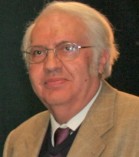 Professor José María Marinas passed away on February 7th, 2023, at the age of 81. Born in Segovia (Spain), he graduated in Chemistry at Complutense University of Madrid and completed his PhD entitled “aluminum orthophosphates as cracking catalysts” at the same University (1971), obtaining the Extraordinary Award. He held different positions in Madrid, Mallorca and in 1976 he became Professor at the University of Cordoba, a position he continued to hold until his retirement in 2016. He moved to Cordoba with several disciples and from scratch founded the Organic Chemistry Department and played a key role in the beginning of the Faculty of Sciences, of which he became Dean. Later, he was also a founding member of the Institute for Fine Chemistry, currently named Chemical Institute for Energy and the Environment (IQUEMA). He was a member of the Spanish Royal Society of Chemistry and the Spanish Catalysis Society (SECAT), whom he always considered his scientific family.
Professor José María Marinas passed away on February 7th, 2023, at the age of 81. Born in Segovia (Spain), he graduated in Chemistry at Complutense University of Madrid and completed his PhD entitled “aluminum orthophosphates as cracking catalysts” at the same University (1971), obtaining the Extraordinary Award. He held different positions in Madrid, Mallorca and in 1976 he became Professor at the University of Cordoba, a position he continued to hold until his retirement in 2016. He moved to Cordoba with several disciples and from scratch founded the Organic Chemistry Department and played a key role in the beginning of the Faculty of Sciences, of which he became Dean. Later, he was also a founding member of the Institute for Fine Chemistry, currently named Chemical Institute for Energy and the Environment (IQUEMA). He was a member of the Spanish Royal Society of Chemistry and the Spanish Catalysis Society (SECAT), whom he always considered his scientific family.
His work always dealt with the application of heterogenous (photo)catalysis to sustainable chemistry. He published several hundred papers in renowned scientific journals and presented numerous communications to congresses.
Professor Marinas received numerous awards and distinctions, among which are the Gold Medal of the Faculty of Sciences of Córdoba, the Award for New Researchers of the Royal Spanish Society of Physics and Chemistry (1973), the “Solvay” Prize for Chemical Research, granted by the Spanish Confederation of Business Organizations (1993), or the Andalusian “Maimónides” Prize for Research (1995). Likewise, the Research Group he led received the "3rd Burdinola Research Award" for its contribution in the field of Applied Organic Chemistry.
He was passionate about teaching and was convinced that teaching and research are not a dichotomy but that they can go hand in hand, synergistically. He inspired thousands of undergraduate students and many dozens of doctoral students and postdocs to whom he transmitted his passion for chemistry. Professor Marinas, throughout his life, endorsed the phrase of the Spanish poet, Antonio Machado: “in matters of culture and knowledge, only what is saved is lost, only what is given is achieved”.
May he rest in peace.
Professor César Jiménez Sanchidrián
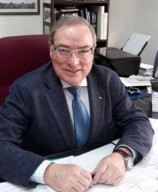
Professor César Jiménez Sanchidrián passed away on May 12, 2023. He was born in a small town in Avila (Spain) called Solana de Rioalmar in 1951. He moved very young to Madrid, where he finished his studies in Chemistry at the Complutense University of Madrid in 1974. Subsequently, he received his PhD degree from the same university in 1977 after completing his doctoral thesis entitled "Study of the AlPO4-SiO2 system as a catalyst for the cracking of petroleum fractions". After several assistant and associate professor positions at various universities, he obtained his position as professor of organic chemistry at the University of Cordoba (Spain) in 1985, acquiring the rank of university full professor in 1996. He remained in this position until he was named professor emeritus in 2021.
He has developed an intense academic and teaching work, having taught in degrees such as Chemistry, Biochemistry, Environmental Sciences, Food Science and Technology, Veterinary Medicine and Industrial Engineering. He has been an outstanding member of the university faculty and the science faculty, where he has been highly praised by his students and colleagues.
His research activity has focused on the field of Heterogeneous Catalysis, particularly in the synthesis of new catalysts, their characterization and their application in synthetic or industrial organic processes. As a result of this research, he published nearly three hundred scientific articles in prestigious indexed journals and a countless number of communications in conferences. In addition, he has collaborated frequently with companies in the chemical sector and has published several invention patents. He has been a member of the Spanish Catalysis Society and the Iberoamerican Catalysis Society, having been a regular participant in the congresses of these societies and president of the SECAT'19 edition.
He was always a person eager for knowledge, in love with Chemistry and Science in general, passionate about teaching and research, but also a true Renaissance man, who cultivated literature, music and art, a lover of history and art, an exceptional conversationalist and tireless reader.
May God rest his soul and may he rest in peace.
Prof. István Pálinkó (1959–2021)
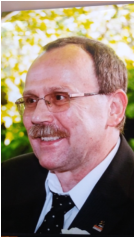 István Pálinkó was born in Kiskőrös (Hungary) in 1959. He commenced his University courses, in chemistry major, in 1978, in the József Attila University of Science (currently University of Szeged). He graduated in 1983 with high distinction (he was awarded with the so-called red diploma, which is given only to those who have spotless academic record). Skipping the dr of Univ degree, he received his Candidacy of Chemical Science degree (broadly equivalent to the currently used PhD) in 1993, and defended his Doctor of Hungarian Academy of Science degree in 2007.
István Pálinkó was born in Kiskőrös (Hungary) in 1959. He commenced his University courses, in chemistry major, in 1978, in the József Attila University of Science (currently University of Szeged). He graduated in 1983 with high distinction (he was awarded with the so-called red diploma, which is given only to those who have spotless academic record). Skipping the dr of Univ degree, he received his Candidacy of Chemical Science degree (broadly equivalent to the currently used PhD) in 1993, and defended his Doctor of Hungarian Academy of Science degree in 2007.
István was employed by the Institute of Chemistry, Department of Organic Chemistry, right after graduation and has worked there until he passed away. He became full professor in the same Department in 2014.
At the time of his death, he held several high profile functions: he was the acting head of the Hungarian Catalysis Society and also, The Chemistry Institute of University of Szeged, the vice-head of the Doctoral School of Chemistry, the vice-head of the Department of Organic Chemistry, the general secretary of the Hungarian Chemical Society, the leader of the recently commenced collaborative GINOP project with the MOL Hungary, member of the Doctoral Council of the Hungarian Academy of Science, and president of the Hungarian Catalysis Workgroup, and these are only the most important ones. Add to these the teaching duties, the supervision of PhD students, various mentoring activities (as he was a keen supporter of chemistry teaching in the secondary schools), participation and organization of scientific conferences (including the European Conference on Molecular Spectroscopy, the Pannon Catalysis Conference, just to mention a few). Not surprisingly, he was a real “workaholic”, spending 12-14 hours at the Department, often over the weekends.
Professor Pálinkó had very broad research interests. Organic catalysis was his main research field, however, he was also very active and productive in several other areas, such as inorganic synthesis, theoretical modelling, materials science, catalysts development (including all kinds of structural characterizations) - and the list is certainly not complete. István was famous for continuously creating brilliant new ideas and had an exceptional and permanently updated encyclopaedic knowledge. In result of these, he had a plethora of collaborations throughout the World in almost all fields within chemistry. He participated in various collaborative research projects with Hungarian scientists from the Hungarian Academy of Sciences (MTA TTK), ELTE - Eötvös University, University of Szeged, and his international network included chemists from the UK, Sweden, Germany and the USA.
He was a very popular teacher of the Institute of Chemistry, University of Szeged: supervised more than a hundred BSc and MSc thesis works and 22 PhD completed dissertations. Eight PhD students were being supervised or co-supervised by him at the time he passed away. His publishing activity was also excellent. He co-authored ca. 300 refereed research papers with a cumulative impact factor of around 600. Currently, he has almost 4000 independent citations to his works, but this number will certainly increase further in the near future. He was holder of both the Széchenyi and the Széchenyi Professorial Scholarships, and the very prestigious George Olah award was awarded to him in 2004.
In 2008, István was one of the two founders of the Materials and Solution Structure Research Group, or MASOST, as he called it: his scientific family. His students highly respected his knowledge, personality and humanity. When he passed away, 18 researchers (postdoctoral fellows and PhD students) were working in the MASOST.
Tribute to Daniel Duprez (1945 - 2022)
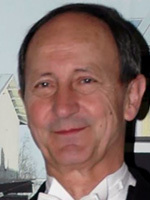
Born in 1945, Daniel Duprez obtained an Engineering Diploma from the Ecole Nationale des Industries Chimiques ENSIC (Nancy) in 1967. After joining the CNRS in 1969, Daniel Duprez obtained a Doctorate in Science (INPL Nancy) in 1975. His work focused on the conversion of aromatics on aluminas and on the study of the formation mechanisms of large aromatic molecules in coal. Following a two-year stay (1976-1978) in the "Catalysis" group of the Elf-Solaize research centre, he joined the catalysis laboratory in Poitiers in 1978.
It was during this period that he initiated the first work on the selective vaporisation of aromatics on metals. This work allowed him to develop the concept of surface mobility in catalysis. As the reaction rates are much more affected by the nature of the support than by the metal phase, he proposed a bifunctional metal/support mechanism in which the hydrocarbon is activated on the metal and the water on the hydrophilic sites of the support. To measure this mobility, he developed an 18O/16O exchange technique using the metal as a gateway for oxygen into the material. The experience acquired in the field of hydrocarbons was then applied to the steam reforming of alcohols and in particular ethanol for the production of hydrogen (fuel cells).
Since the 1990s, Daniel has also applied the concept of mobility to automotive pollution control catalysis, where the principle of "oxygen storage" in materials has proved decisive in accounting for the enhanced performance of ceria-based catalysts under transient oxygen concentration conditions. The tool developed in Poitiers has been adapted to the study of materials with very high oxygen mobility (ceria and especially mixed ceria-zirconia compounds), by introducing into the mobility model additional steps such as the formation of superoxide and peroxide species. More recently, and particularly since his emeritus in 2011, Daniel Duprez has focused on understanding the role of interfaces and grain boundaries (dislocations) in mobility and catalytic processes. His expertise, recognised worldwide from the United States to Japan, is reflected in more than 300 scientific publications, 20 reviews and book chapters and 78 invited conferences.
In parallel to his intense scientific activity, Daniel has played an important role in the development of heterogeneous catalysis in Poitiers as deputy director of the Laboratory of Catalysis in Organic Chemistry (LACCO) between 1991 and 1999 and then as director of LACCO for two terms, from 2000 to 2007. From 2008 to 2010, he directed the REAUMUR Federation which led to the creation of the Institute of Chemistry, Media and Materials of Poitiers (IC2MP).
Daniel Duprez has strongly contributed to the promotion of French catalysis at the international level, in particular through his role as President of the Catalysis Division of the Société Chimique de France from 2006 to 2010 and from 2011 to 2012.
Daniel Duprez has also worked hard to educate future generations in the fundamental principles and practice of catalysis. He has served the chemical community in a selfless way by organising or participating in the organisation of international symposia and conferences. He has taught the community through excellent and very important critical reviews on various aspects of catalysis. Throughout his career he has embodied the spirit of the teacher and the researcher, while making very important contributions to the application of catalysis in areas of great impact on sustainable chemical synthesis and the production of energy carriers for the future.
Emeritus research director from 2011 to 2021, Daniel has continued to come regularly to the IC2MP to exchange with his colleagues and pass on his knowledge, always with benevolence. Having left for Lyon a year ago for health reasons and to be closer to his children, he continued to keep in touch with each other both professionally and personally. His scientific curiosity was still very present and we will sadly miss his occasional sending of articles from scientific and non-scientific journals to discuss current events. All those who had the chance to collaborate with him will remember not only his scientific qualities, but also his many human qualities such as his generosity, his constructive spirit and his optimism.
Professor Geoff Bond (1927-2022)
 Prof Geoff Bond 1927-2022 | Brunel University London
Prof Geoff Bond 1927-2022 | Brunel University London
Written by Prof Bond's grandson, J. L. Bond, with contributions from Dr A. O. Taylor and other colleagues. Professor Geoffrey C Bond, PhD, DSc, FRSC, passed away after a short illness, peacefully in his sleep, on 9 January at Watford General Hospital, close to his home in Rickmansworth.
Dr. Kirill V. Kovtunov (1983 – 2020)
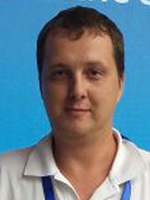
Our colleague and friend passed away at the age of only 37. Yet, he contributed substantially to the field that combines catalysis and magnetic resonance, including the development of NMR signal enhancement techniques for the mechanistic studies of catalytic reactions and operando NMR spectroscopy and imaging of reactors. In 2016, Kirill received the Young Scientist Prize at ICC16 in Beijing, China, and was invited to give a talk at ICC17 in San Diego. Through his research he developed strong ties with numerous collaboration partners in Russia and abroad. In December 2019, he defended his Habilitation thesis and was very enthusiastic about starting a number of new exciting projects. But life decided differently. In January Kirill was diagnosed with cancer, and despite his unwavering resolve and determination to fight the disease, we lost him. His demise is a tremendous grief for his family, colleagues, students and friends.
Igor Koptyug, Eduard Chekmenev, Boyd Goodson, Valerii Bukhtiyarov
Professor Bernard Delmon
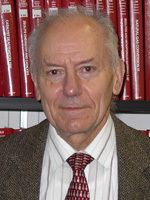 Our colleague, Professor Bernard Delmon passed away on Tuesday April 7 (not from Coronavirus) at the age of 87. Full professor at UCLouvain (Louvain-la-Neuve, Belgium), he has been a major player in the development of heterogeneous catalysis, publishing 18 books and several hundreds of articles. He was doctor honoris causa of the University of Patras (Greece), founder of the journals "Applied Catalysis", "Catalysis Today" and of the series "Studies in Surface Science and Catalysis", initiator of several series of international congresses still running today, member of the Royal Academy of Belgium and had been president of the European Federation of Chemical Engineering. In 1992, he received the prestigious "Alexander Von Humbolt" award. Professor Emeritus of the Faculty of Bioengineers of UCLouvain since 1997, he has inspired generations of students and researchers and founded the research group on heterogeneous catalysis still active nowadays in Louvain-la-Neuve.
Our colleague, Professor Bernard Delmon passed away on Tuesday April 7 (not from Coronavirus) at the age of 87. Full professor at UCLouvain (Louvain-la-Neuve, Belgium), he has been a major player in the development of heterogeneous catalysis, publishing 18 books and several hundreds of articles. He was doctor honoris causa of the University of Patras (Greece), founder of the journals "Applied Catalysis", "Catalysis Today" and of the series "Studies in Surface Science and Catalysis", initiator of several series of international congresses still running today, member of the Royal Academy of Belgium and had been president of the European Federation of Chemical Engineering. In 1992, he received the prestigious "Alexander Von Humbolt" award. Professor Emeritus of the Faculty of Bioengineers of UCLouvain since 1997, he has inspired generations of students and researchers and founded the research group on heterogeneous catalysis still active nowadays in Louvain-la-Neuve.
May Professor Delmon rest in peace.
Eric Gaigneaux, Patricio Ruiz, Michel Devillers, Damien Debecker, Sophie Hermans
Professor Jose Luis García Fierro (1948 –2020)
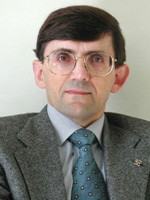 On 3 February, Professor Jose Luis Garcia Fierro died in Madrid, Spain, at the age of 71. Professor Fierro studied Chemistry at the University of Oviedo (Spain) where in 1973 he graduated with honours. In 1976, he received his PhD Degree in Chemistry from the Complutense University of Madrid (Spain). As post-doctoral researcher, he expanded his scientific experience working in prestigious laboratories of University Pierre et Marie Curie (Paris, France), University College of Cork (Ireland) and Université Catholique de Louvain (Louvain-la-Neuve, Belgium). Since 1974 and untill end of his life, he worked at the Spanish National Council for Scientific Research (CSIC) where he developed his passion for scientific research.
On 3 February, Professor Jose Luis Garcia Fierro died in Madrid, Spain, at the age of 71. Professor Fierro studied Chemistry at the University of Oviedo (Spain) where in 1973 he graduated with honours. In 1976, he received his PhD Degree in Chemistry from the Complutense University of Madrid (Spain). As post-doctoral researcher, he expanded his scientific experience working in prestigious laboratories of University Pierre et Marie Curie (Paris, France), University College of Cork (Ireland) and Université Catholique de Louvain (Louvain-la-Neuve, Belgium). Since 1974 and untill end of his life, he worked at the Spanish National Council for Scientific Research (CSIC) where he developed his passion for scientific research.
Professor Fierro was an internationally recognized scientist in diverse areas of heterogeneous catalysis and solid state chemistry applied to: natural gas conversion, selective oxidations of paraffins and olefins, synfuels, environmental catalysis, catalytic combustion, surface chemistry, heteroatom removal and dearomatization of petroleum feedstocks, fuel cells and hydrogen production. He was a reference in the application of XPS technique for the characterisation of catalytic surfaces and pioneered in Spain the developments of catalytic technologies in C1 chemistry, the set of reactions around methane that allow the synthesis from natural gas of a variety of chemicals and fuels. He was the promoter and leader of the Sustainable Chemistry and Energy Group at the Institute of Catalysis and Petrochemistry (CSIC) which has become an important Spanish research group of renowned international prestige in the areas of heterogeneous catalysis and chemistry of materials and where a large number of national and foreign students have carried out their doctoral work. His broad research, both fundamental and applied, are compiled in more than 1200 papers in renowned specialist journals devoted to heterogeneous catalysis, chemical engineering, materials science and surface chemistry. He has edited a total of 10 books (editor and/or co-author), holds 37 patents, and was plenary speaker at many congresses, seminars and scientific events held in national and international Universities, research centres and companies all around the world. His work was recognised with several acknowledgements: Award on Hydrogen production from Renewable Energies (2004), Senior Research Award of the Iberoamerican Federation of Catalysis Societies (FISOCAT)( 2008), Medal of the King Saud University, Saudi Arabia (2008), Senior Research Award “Miguel Catalan”, Madrid (2008) and Honoris Causa Doctorates from the University of Patras, Greece (2009), the University of Concepción, Chile (2014), and the San Marcos University, Peru (2017).
During his scientific career, Professor Fierro oversaw and inspired more than 100 doctorate, graduate students and postdocs all around the world (USA, Saudi Arabia and especially Latin American countries such as Mexico, Peru, Bolivia, Argentina, Chile, Brazil and Colombia, with which he always kept a special connection). Among his former students and post-doc researchers, there are many scientists who today occupy key positions in national and international universities, industries and different organisations. All of them will remember his brilliant scientific capacity, his meticulousness and patience in the laboratory and his willingness to help. In addition to his scientific accomplishments, Professor Fierro was known for his ability to build and manage successful work teams and create a family environment among researchers. He was a wonderful colleague and friend and one of those rare beings, an exceptionally effective and dedicated scientist, a good and cheerful person and always with time to listen and help others. His human quality was exceptional, valuing everyone's work, from the most important to the least, which made him win the respect for all of us who were lucky enough know and meet him.
May he rest in peace!
His disciples and friends
Professor Michel Che
 Michel was born in Lyon in December 1941. After obtaining a degree in Chemical Engineering in Lyon, he joined the « Institut de Recherches sur la Catalyse », CNRS Laboratory (IRC) in Lyon. He was awarded his PhD in 1968 by the University of Lyon and subsequently was a postdoctoral fellow at Princeton University (1969–1971) working with Prof J. Turkevich. In 1975, he moved from the IRC to assume the role of professor at Université P. & M. Curie-Paris-6, where he became director of the « Laboratoire de Réactivité de Surface » and in 1995 he became senior member of the « Institut Universitaire de France ».
Michel was born in Lyon in December 1941. After obtaining a degree in Chemical Engineering in Lyon, he joined the « Institut de Recherches sur la Catalyse », CNRS Laboratory (IRC) in Lyon. He was awarded his PhD in 1968 by the University of Lyon and subsequently was a postdoctoral fellow at Princeton University (1969–1971) working with Prof J. Turkevich. In 1975, he moved from the IRC to assume the role of professor at Université P. & M. Curie-Paris-6, where he became director of the « Laboratoire de Réactivité de Surface » and in 1995 he became senior member of the « Institut Universitaire de France ».
Michel Che was very active in serving the catalysis and wider scientific community. He was President of the « Catalysis Division » of the « Société Chimique de France » and from 2007-2009 he was Vice-President of « Société Chimique de France» . From 1993 – 1995, he was the President-Founder of EFCATS (the European Federation of Catalysis Societies) being instrumental in initiating the biennial EuropaCat congresses. He was also President of IACS (the International Association of Catalysis Societies) between the years 2000-2004.
He was the recipient of numerous international awards, most notably from China, France, Italy, Germany, Japan The Netherlands, Poland, the UK, the USA and he was a pro-active member of many scientific committees, and in particular in those in China, France, Japan and UK.
He pioneered a molecular approach to catalyst design by bridging the gap between homogeneous and heterogeneous catalysis through the new field of interfacial coordination chemistry based on the combined use of transition metal complexes, specific isotopes and physical techniques. He made a major contribution to the improved understanding of the elementary step occurring at the solid-liquid (gas) interface.
He had especially close ties with China where his father had been born before emigrating to France (Lyon). Indeed, Michel was one of the first foreign scientists who visited China as early as 1977, when China opened up once again to the world. Due to his great contributions to the scientific development of China, and in particular international cooperation between France and China, he was awarded the International Cooperation Award of China which was presented to him by the Chinese President and which is the highest Chinese honor for foreign scientists.
In addition to his significant scientific contributions, Michel was greatly appreciated by all for his human qualities. All his students recognised him as an outstanding mentor. As a chairman of many committees, he used his influence to great effect including by defining research strategies, by promoting international collaborations and by fostering and educating generations of young scientists to become active and leading scientists across the globe. As Sir John Meurig Thomas wrote to me « he was a noble human being and a so fine scientist ».
We shall always remember Michel’s contribution to catalysis and his friendship with great affection. His spririt and soul will remain in our hearts for ever.
Jacques Vedrine.